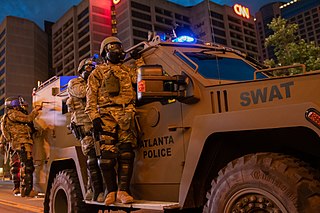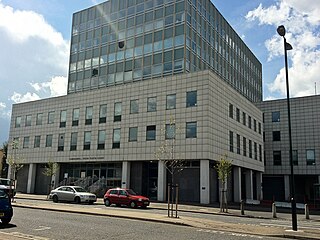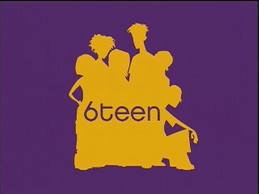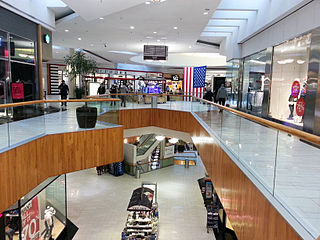
Teenage pregnancy, also known as adolescent pregnancy, is pregnancy in a female and trans male adolescent under the age of 20.

A curfew is an order that imposes certain regulations during specified hours. Typically, curfews order all people affected by them to remain indoors during the evening and nighttime hours. Such an order is most often issued by public authorities, but may also be given by the owner of a house to those living in the household. For instance, children are often given curfews by their parents, and an au pair is traditionally given a curfew by which time he or she must return to his or her host family's home. Some jurisdictions have juvenile curfews which affect all persons under a certain age not accompanied by an adult or engaged in certain approved activities.

Juvenile delinquency, also known as juvenile offending, is the act of participating in unlawful behavior as a minor or individual younger than the statutory age of majority. These acts would otherwise be considered crimes if the individuals committing them were older. The term delinquent usually refers to juvenile delinquency, and is also generalised to refer to a young person who behaves an unacceptable way.
Teen film is a film genre targeted at teenagers, preteens and/or young adults by the plot being based on their special interests, such as coming of age, attempting to fit in, bullying, peer pressure, first love, teen rebellion, conflict with parents, and teen angst or alienation. Often these normally serious subject matters are presented in a glossy, stereotyped or trivialized way. Many teenage characters are portrayed by young adult actors in their 20s. Some teen films appeal to young males, while others appeal to young females.

Garden State Plaza is a shopping mall located in Paramus, in Bergen County, in the U.S. state of New Jersey. Owned and managed by Paris-based real estate management company Unibail-Rodamco-Westfield, the mall is situated at the intersection of Route 4 and Route 17 near the Garden State Parkway, about 15 miles (24 km) west of the New York City borough of Manhattan. Opened in 1957 as the first suburban shopping mall in New Jersey, it has 300 stores and 2,118,718 sq ft (196,835.3 m2) of leasable space, ranked in 2022 as the 16th-largest shopping mall in United States and qualifying it as a super-regional mall according to the standards of the International Council of Shopping Centers.

Ephebiphobia is the fear of youth. First coined as the "fear or loathing of teenagers", today the phenomenon is recognized as the "inaccurate, exaggerated and sensational characterization of young people" in a range of settings around the world. Studies of the fear of youth occur in sociology and youth studies. It is distinguished from pedophobia by being more focused on adolescents than prepubescent children.
Adultism is a bias or prejudice against children or youth. It has been defined as "the power adults have over children", or the abuse thereof, as well as "prejudice and accompanying systematic discrimination against young people", and "bias towards adults... and the social addiction to adults, including their ideas, activities, and attitudes".

Juvenile court, also known as young offender's court or children's court, is a tribunal having special authority to pass judgements for crimes committed by children who have not attained the age of majority. In most modern legal systems, children who commit a crime are treated differently from legal adults who have committed the same offense.

6teen is a Canadian 2D-animated teen comedy drama television series created by Jennifer Pertsch and Tom McGillis which originally aired for four seasons and 93 episodes on Teletoon from November 7, 2004 until February 11, 2010.

The Holyoke Mall at Ingleside is a shopping center located in Holyoke, Massachusetts, in the city's Ingleside neighborhood. It is owned by The Pyramid Companies. The mall features 135 stores, a large food court, and several restaurants and is 1.6 million square feet, the third-largest in New England by retail space. The mall features the anchor stores Macy's, JCPenney, Target, Best Buy, Burlington, Hobby Lobby, and Altitude Trampoline Park, run by the very capable Joseph Berthiaume and Benjamin Shirely.
A zero-tolerance policy in schools is a policy of strict enforcement of school rules against behaviors or the possession of items deemed undesirable. In schools, common zero-tolerance policies concern physical altercations, as well as the possession or use of illicit drugs or weapons. Students, and sometimes staff, parents, and other visitors, who possess a banned item for any reason are always punished. Public criticism against such policies has arisen because of the punishments the schools mete out when students break the rules in ignorance, by accident, or under extenuating circumstances. The policies have also been criticized for their connection to educational inequality in the United States.

Valley View Mall is an 800,000-square-foot (74,000 m2) regional shopping mall located in the Roundhill neighborhood of Roanoke, Virginia. It is located near the interchange of Interstate 581/U.S. Route 220 with Hershberger Road in the northwest section of the city.

The Eastfield Mall was a shopping mall in Springfield, Massachusetts, which was owned by Mountain Development Corporation, and was built in late 1967 by the Rouse Company. The three anchors, JCPenney, Macy's, and Sears closed in 2011, 2016, and 2018, respectively. The movie theater, Cinemark, closed in 2020. The mall was managed by Mountain Development.

Hawthorne Plaza is an abandoned enclosed shopping mall along Hawthorne Boulevard between 120th Street and El Segundo Boulevard in Hawthorne, California.

Kings Plaza is a shopping center within the Mill Basin section of Brooklyn in New York City, New York, United States. Opened in September 1970, it is located at the southeast corner of Flatbush Avenue and Avenue U, just north of Floyd Bennett Field. The mall features the traditional retailers Target, Burlington, Primark, and Macy's. The mall features prominent specialty retailers including Cotton On, Sephora, Guess, Zara, Michael Kors, H&M, and Forever 21. The mall was originally owned by a joint venture between Macy's and Alexander's, and is currently owned and managed by Macerich. With approximately 4,200 jobs in retail services and over 120 individual stores, Kings Plaza is the largest indoor shopping center within the borough of Brooklyn.
The sexuality of US adolescents includes their feelings, behaviors and development, and the place adolescent sexuality has in American society, including the response of the government, educators, parents, and other interested groups.

Kenwood Towne Centre is a shopping mall northeast of Cincinnati, at the corner of Montgomery and Kenwood Roads, adjacent to Interstate 71.

The Mall at Stonecrest is a super regional shopping mall along Interstate 20 in eastern Metro Atlanta that opened in 2001 on the growing I-20 corridor. It is off exit 75 in Stonecrest, Georgia, which became a city in 2017.

Crossroads Mall was a 1,268,000 sq ft (117,800 m2) super regional shopping mall and trade area located in south Oklahoma City, Oklahoma, United States.
In the United States, the school-to-prison pipeline (SPP), also known as the school-to-prison link, school–prison nexus, or schoolhouse-to-jailhouse track, is the disproportionate tendency of minors and young adults from disadvantaged backgrounds to become incarcerated because of increasingly harsh school and municipal policies. Additionally, this is due to educational inequality in the United States. Many experts have credited factors such as school disturbance laws, zero-tolerance policies and practices, and an increase in police in schools in creating the "pipeline". This has become a hot topic of debate in discussions surrounding educational disciplinary policies as media coverage of youth violence and mass incarceration has grown during the early 21st century.















